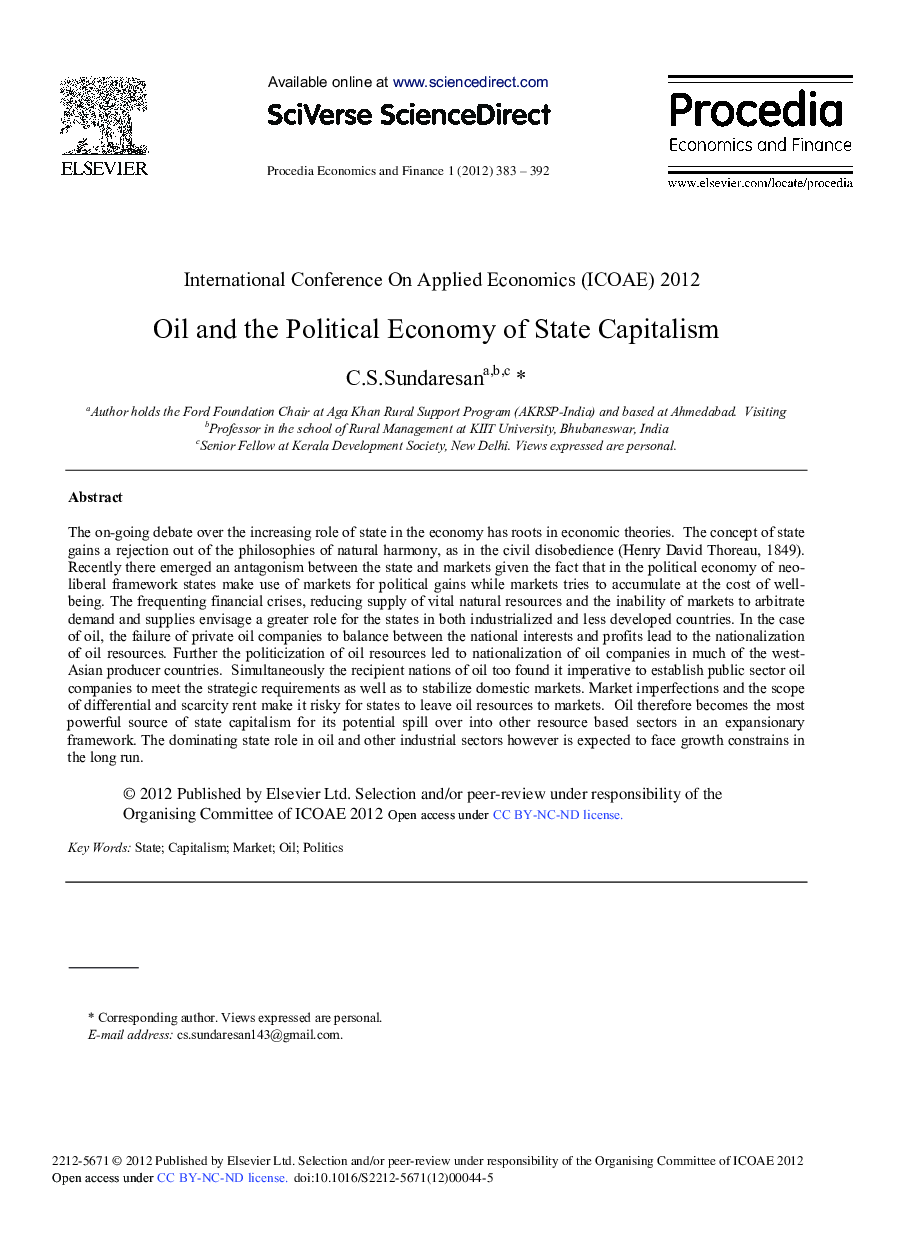| Article ID | Journal | Published Year | Pages | File Type |
|---|---|---|---|---|
| 980329 | Procedia Economics and Finance | 2012 | 10 Pages |
The on-going debate over the increasing role of state in the economy has roots in economic theories. The concept of state gains a rejection out of the philosophies of natural harmony, as in the civil disobedience (Henry David Thoreau, 1849). Recently there emerged an antagonism between the state and markets given the fact that in the political economy of neo-liberal framework states make use of markets for political gains while markets tries to accumulate at the cost of well-being. The frequenting financial crises, reducing supply of vital natural resources and the inability of markets to arbitrate demand and supplies envisage a greater role for the states in both industrialized and less developed countries. In the case of oil, the failure of private oil companies to balance between the national interests and profits lead to the nationalization of oil resources. Further the politicization of oil resources led to nationalization of oil companies in much of the west-Asian producer countries. Simultaneously the recipient nations of oil too found it imperative to establish public sector oil companies to meet the strategic requirements as well as to stabilize domestic markets. Market imperfections and the scope of differential and scarcity rent make it risky for states to leave oil resources to markets. Oil therefore becomes the most powerful source of state capitalism for its potential spill over into other resource based sectors in an expansionary framework. The dominating state role in oil and other industrial sectors however is expected to face growth constrains in the long run.
